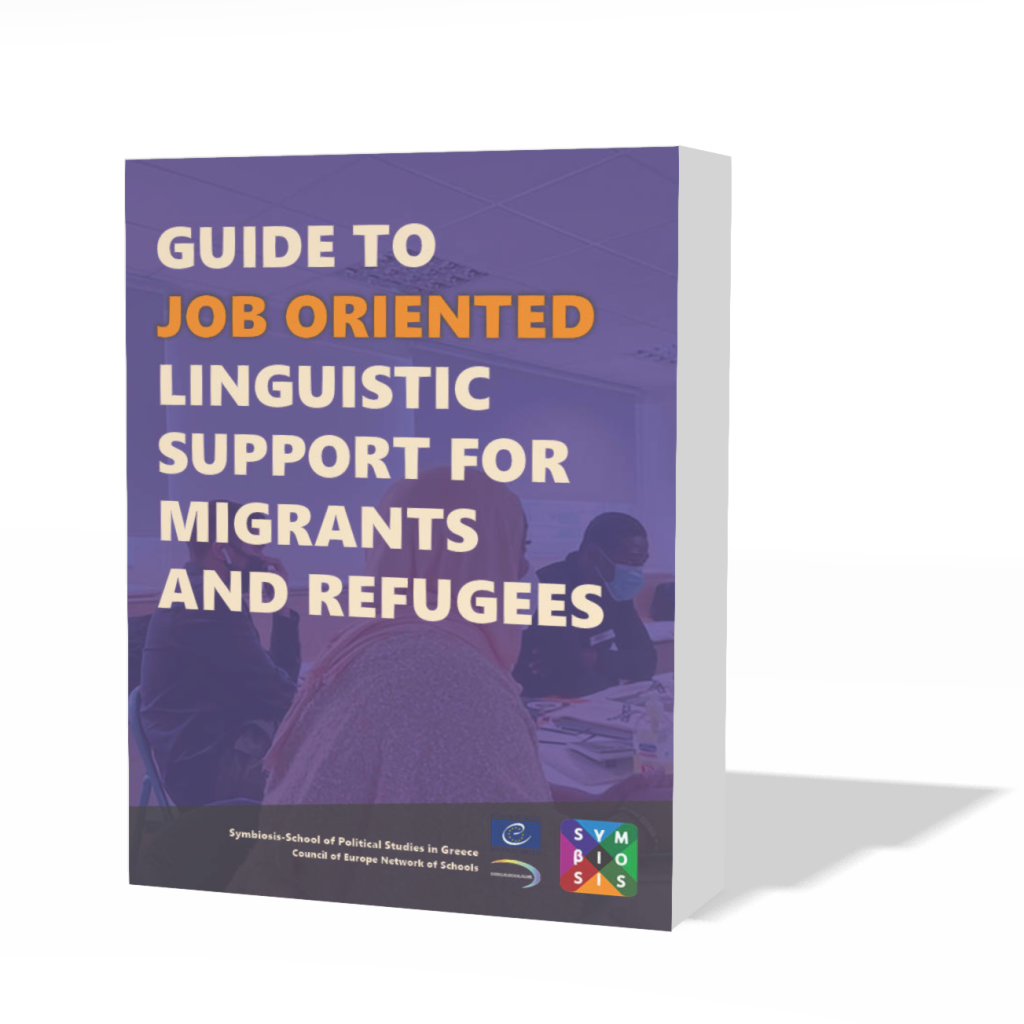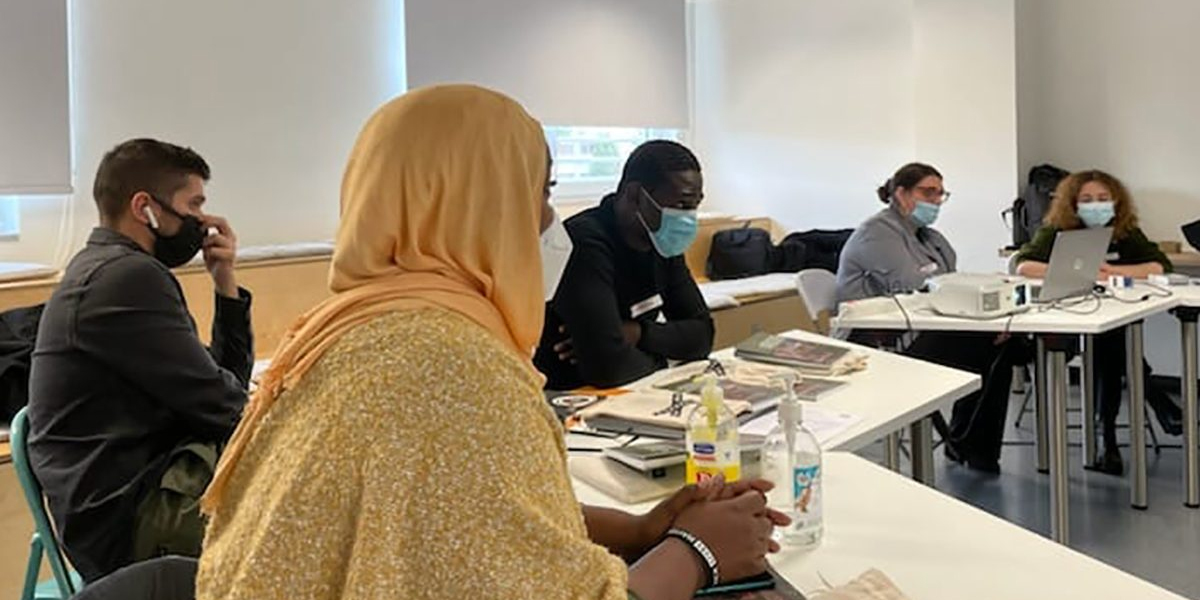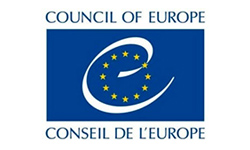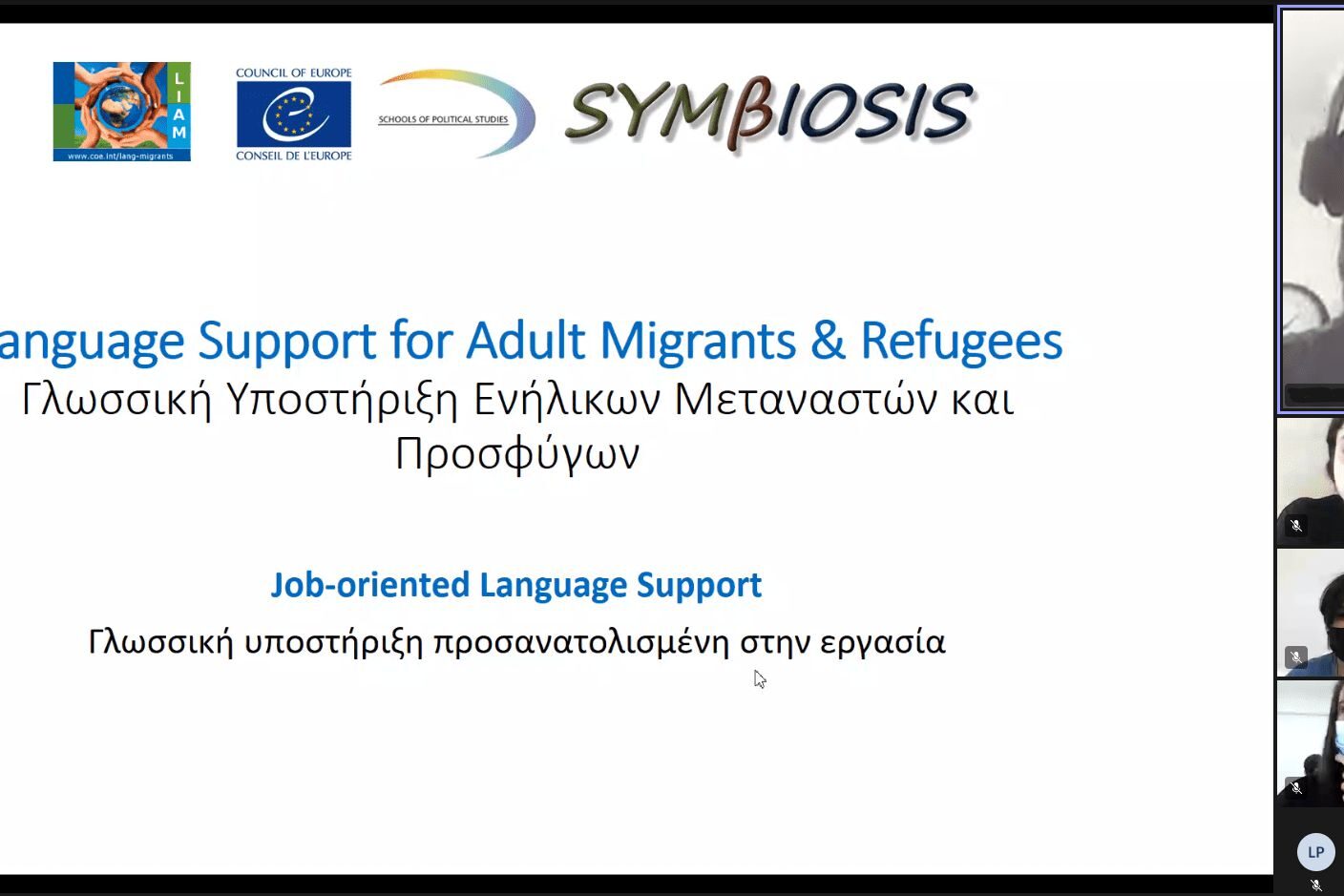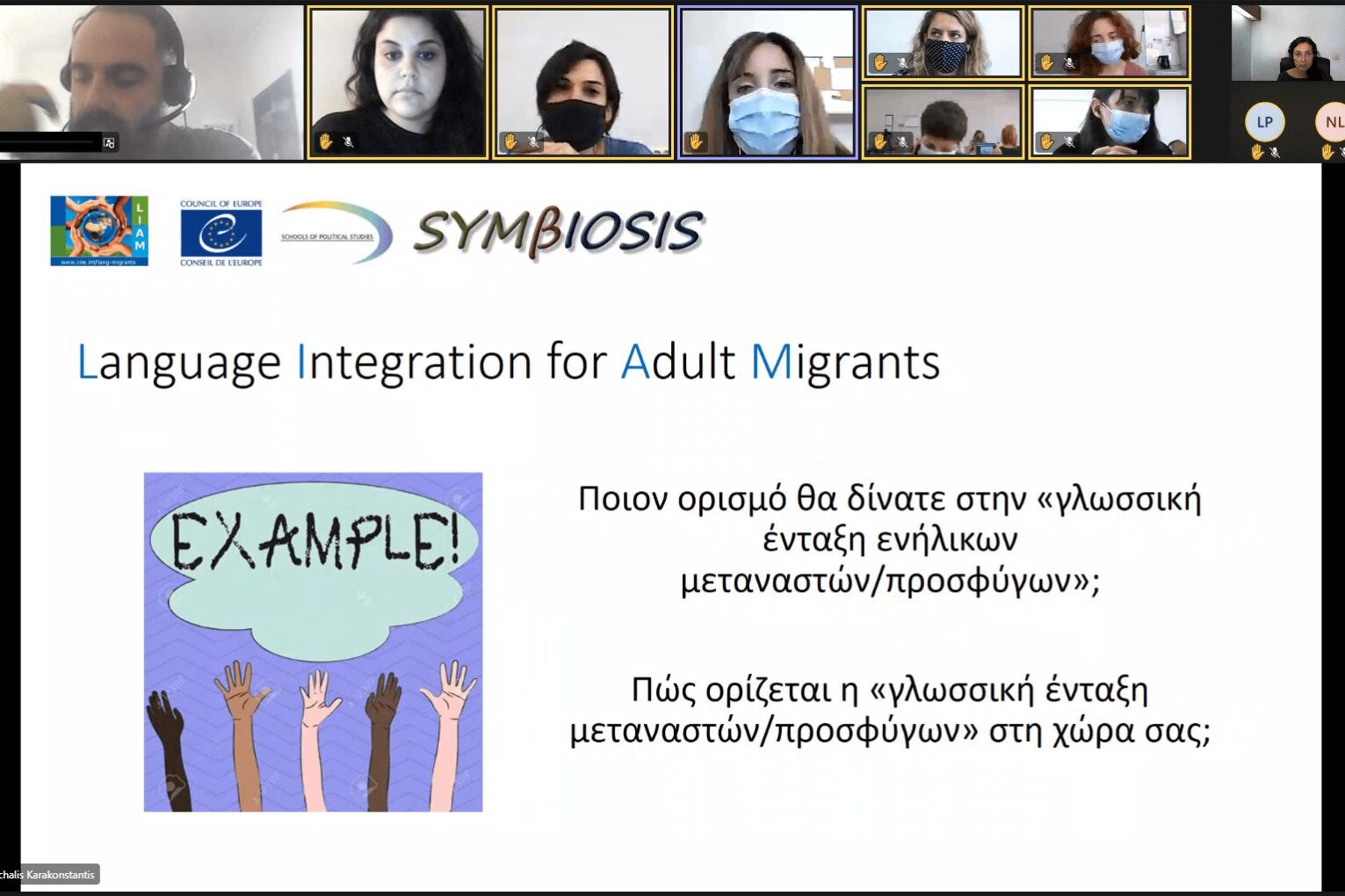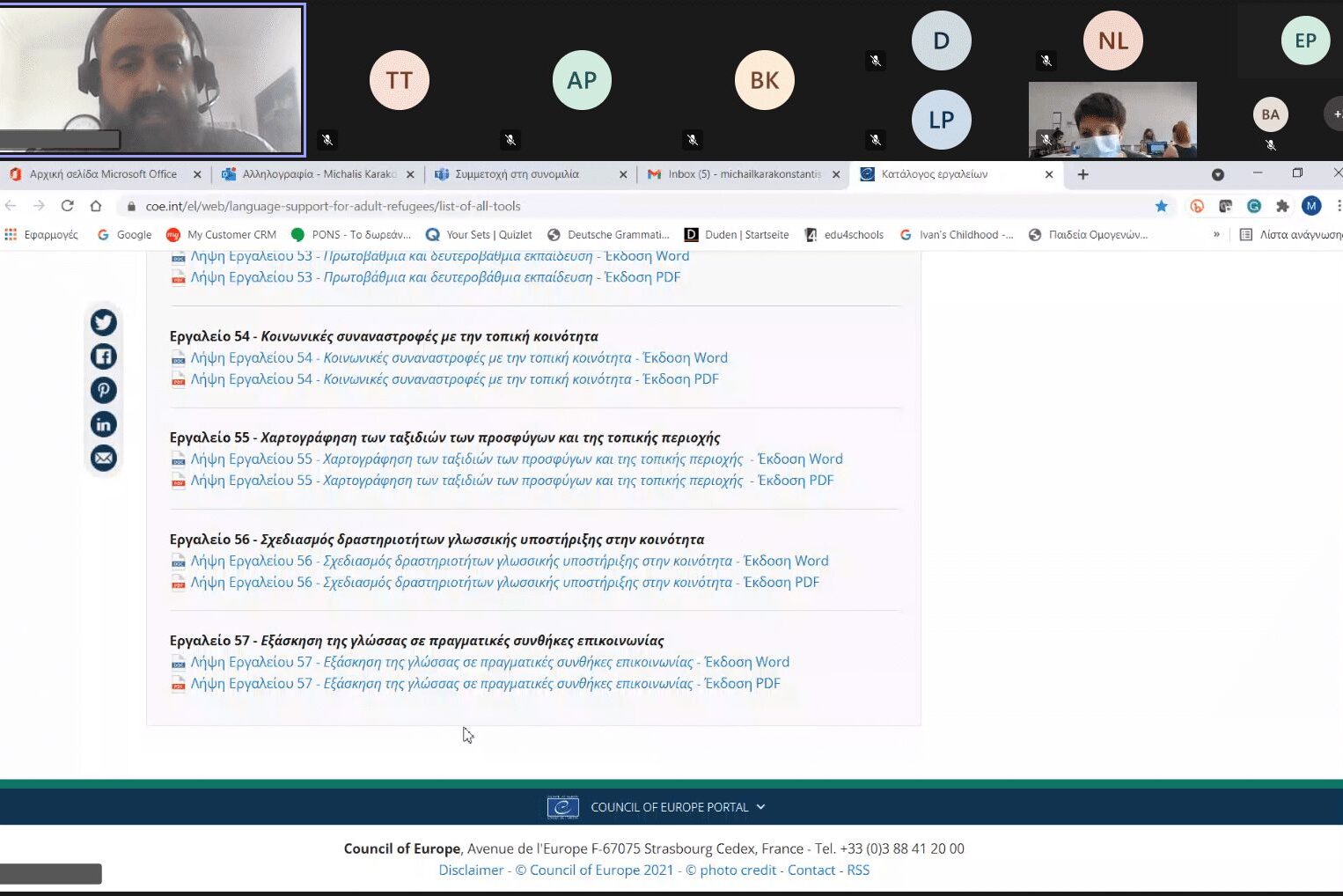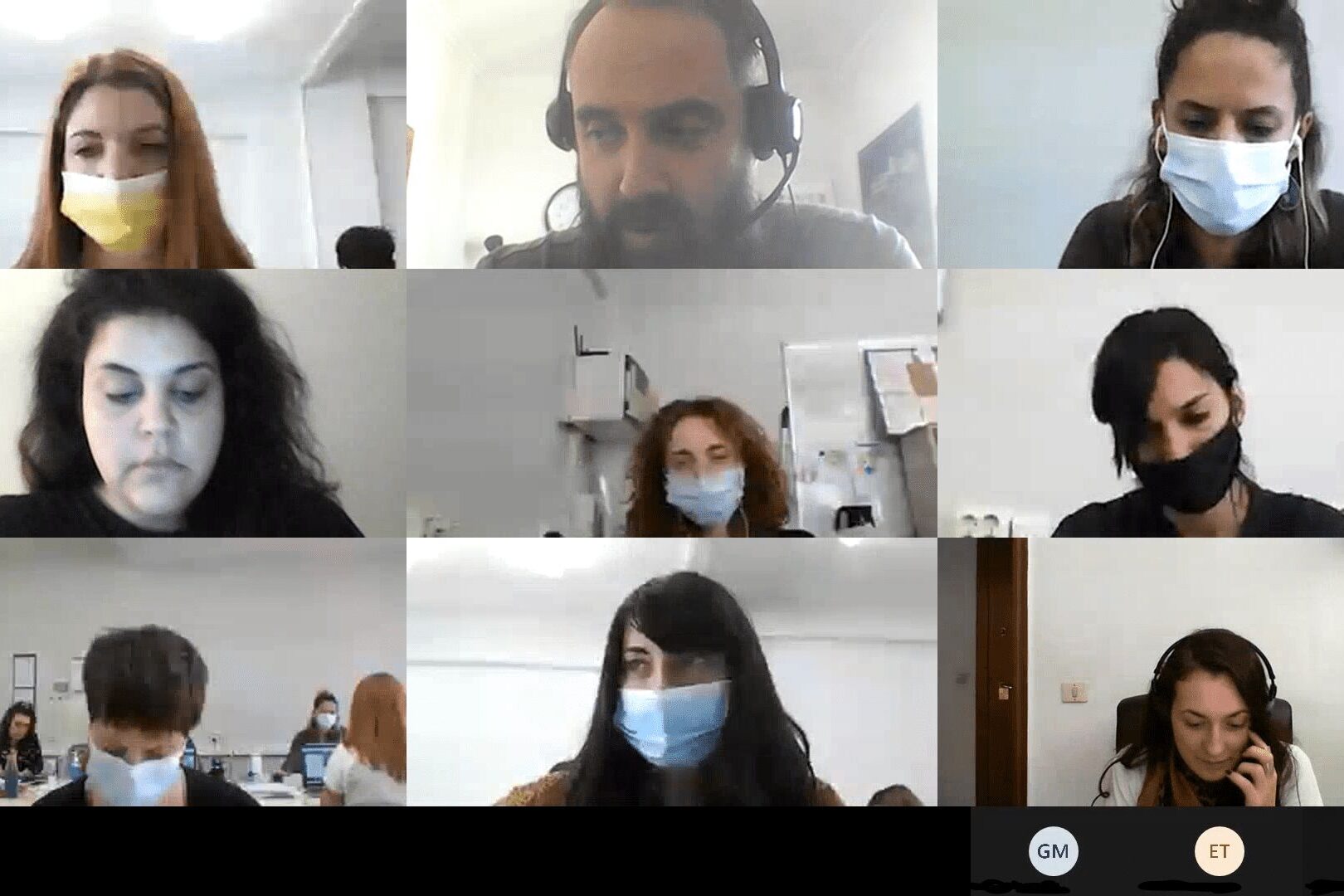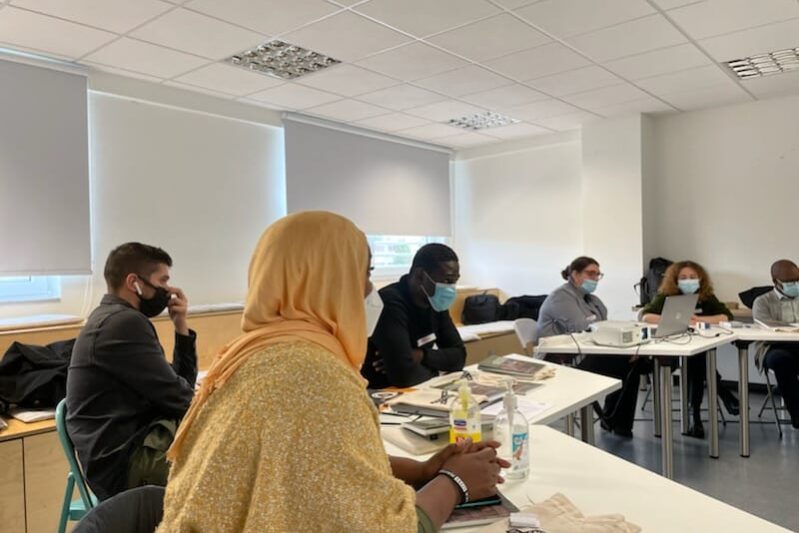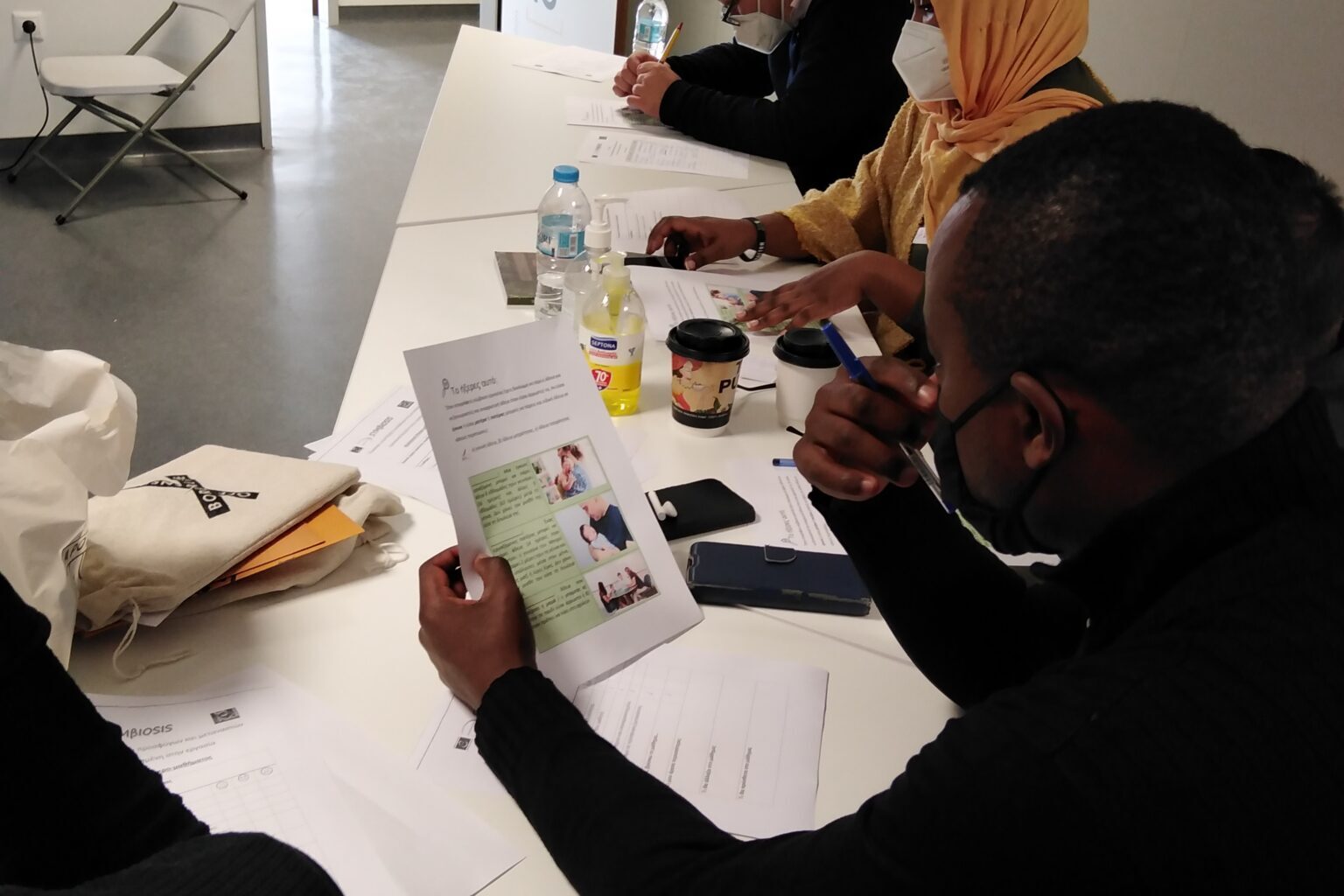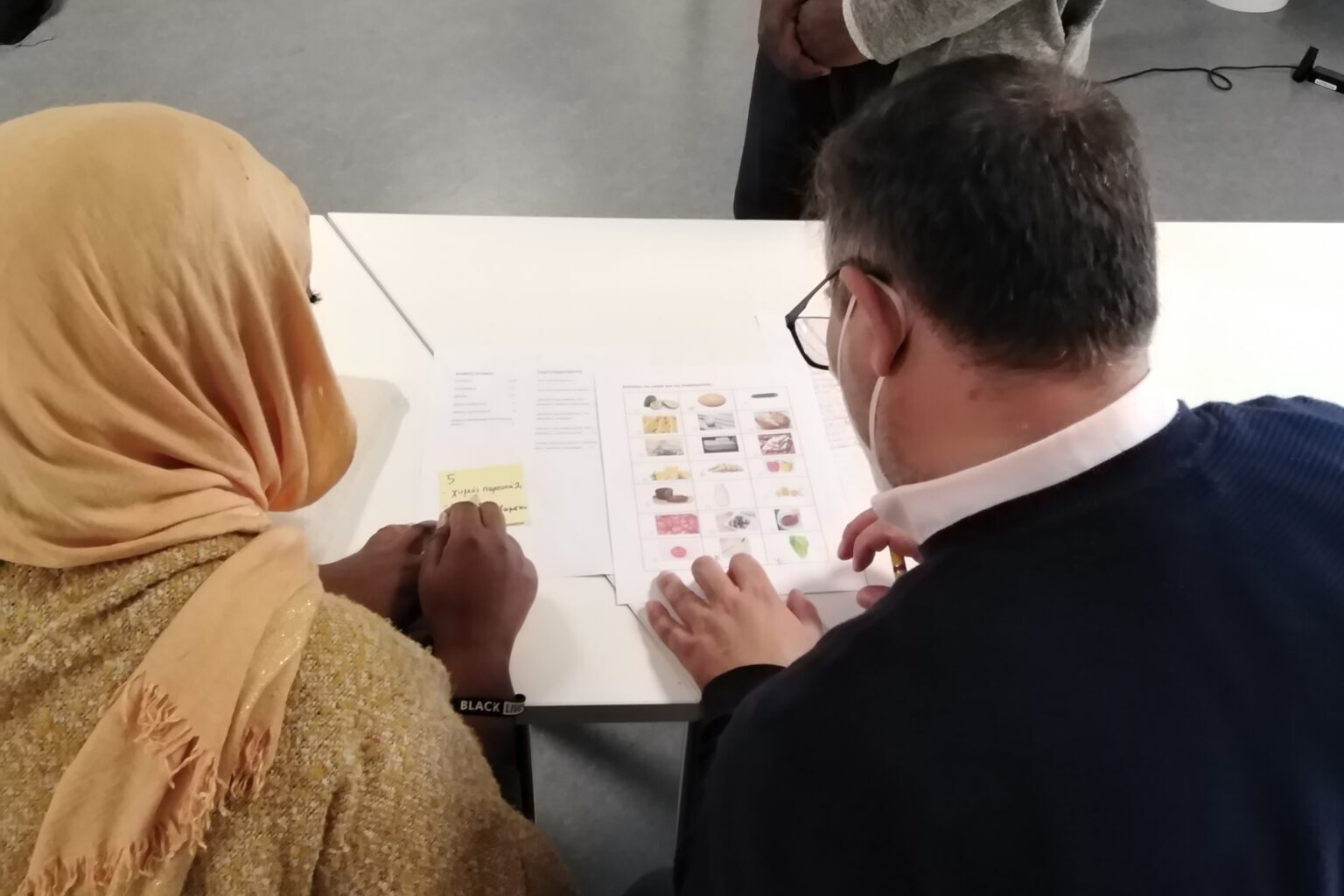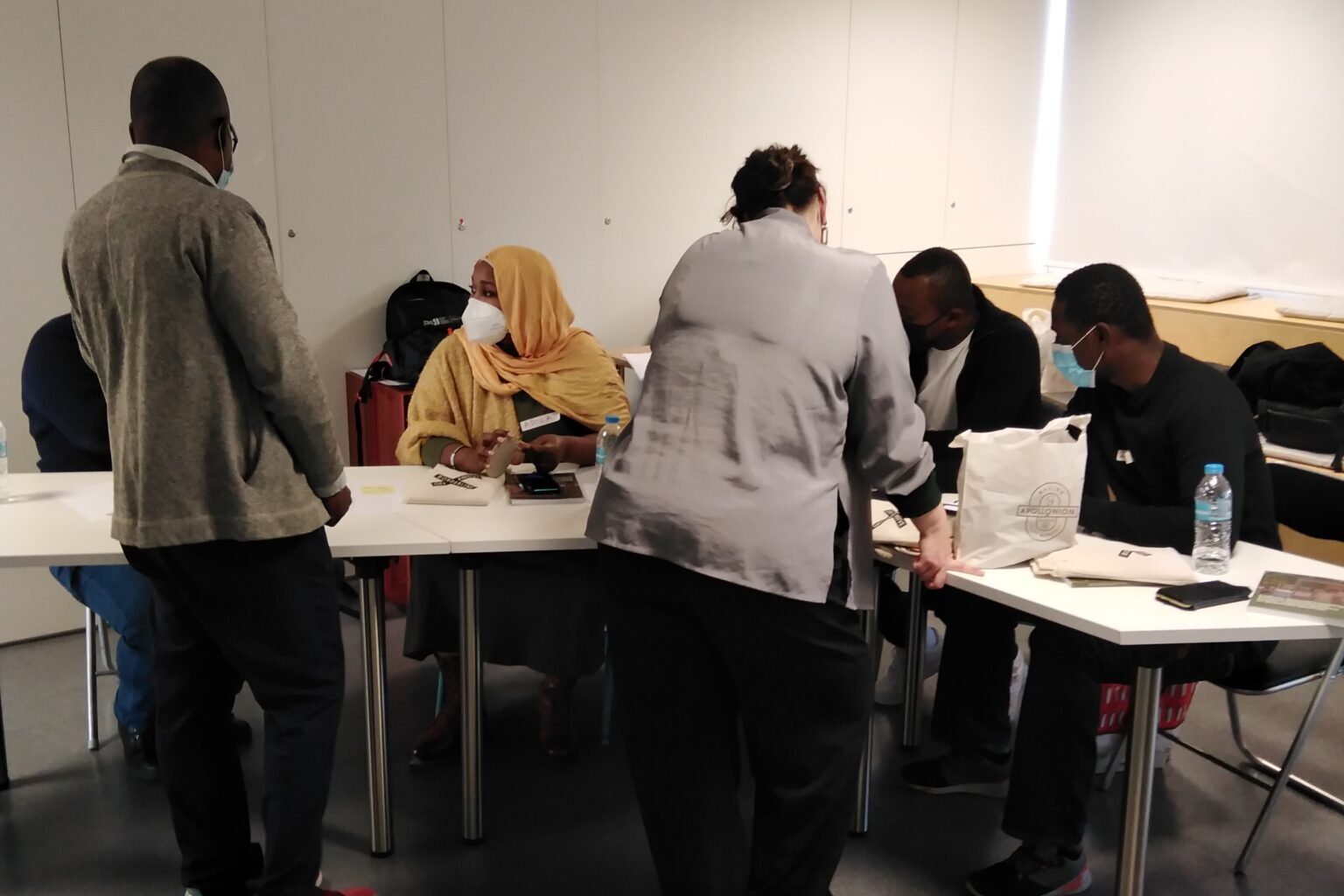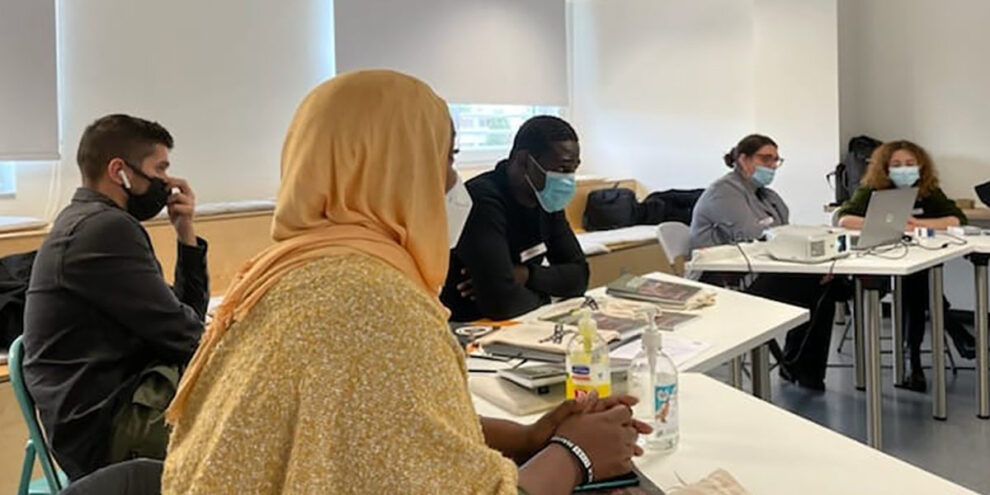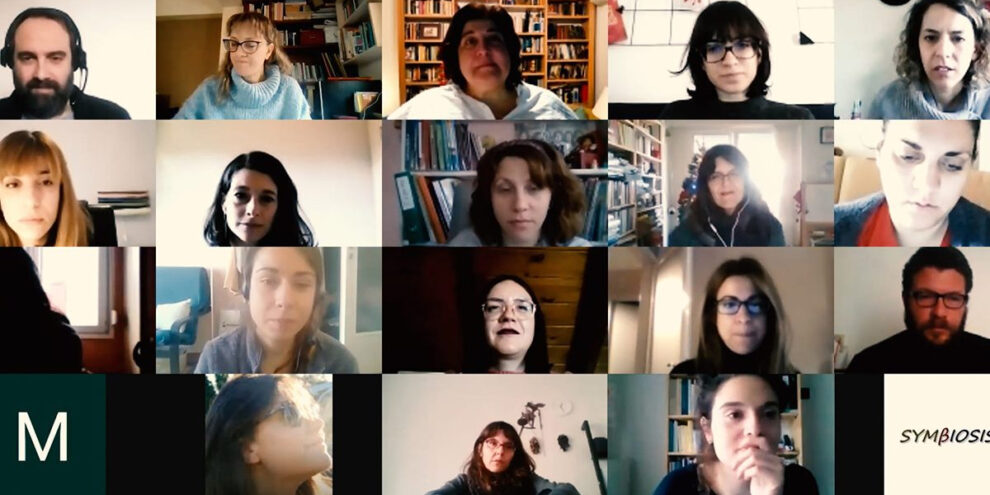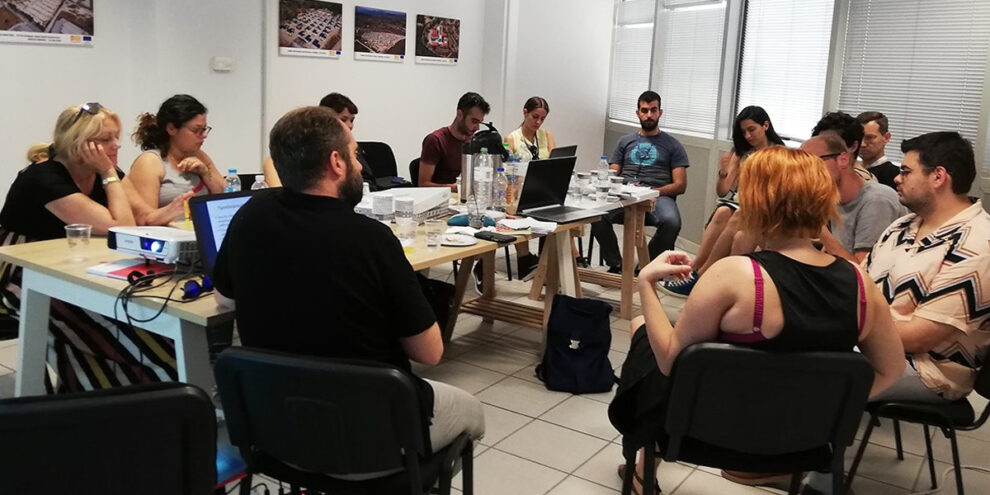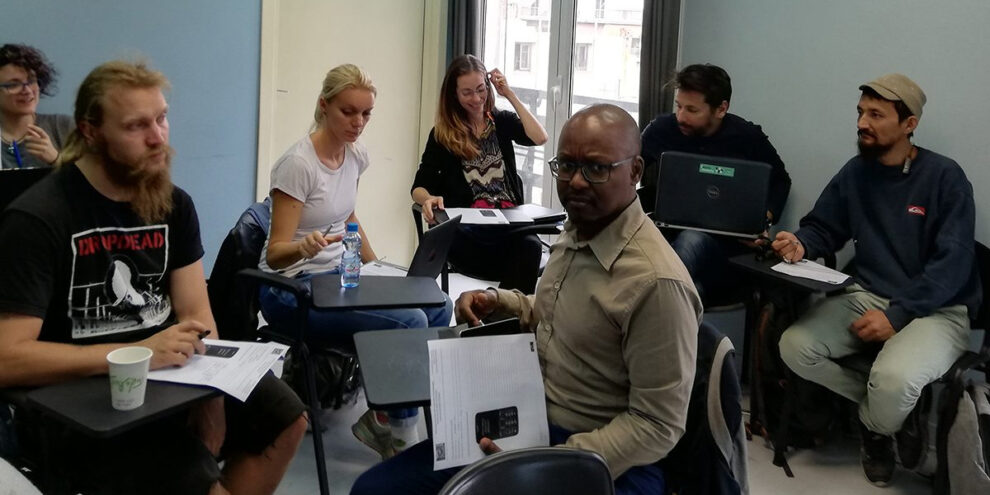Aiming to foster migrants and refugees’ integration to the labour market and society through linguistic integration and following the successful dissemination of the Council of Europe Linguistic Integration for Adult Migrant (LIAM) toolkit in 2018-19-20, Symbiosis-School of Political Studies in Greece, affiliated to the Council of Europe Network of Schools, implemented the project ‘LIAM Labour Linguistic Integration 2021 (LiLaLI 2021)’. The project aimed to address the challenging work environment for the migrant population, with the goal to protect human rights in a democratic state governed by the rule of law, by developing and piloting a Language Support Guide for Work, a proposed 58th tool for the LIAM Toolkit.
Migrant and refugee workers’ legal and economic vulnerability makes them subject to exploitation, a situation caused by and further aggravating the undermining of respect for and enforcement of decent work conditions and standards in national labour markets. Moreover, the implementation of EU laws is lacking hugely in many countries, who thus do not necessarily guarantee equality of treatment and non-discrimination for non-citizens in the workforce. In addition, the scarcity of primary communication skills in the second language (L2) is significantly responsible for the prolonged and rising unemployment of migrants and refugees in Europe.
This Tool aims to aid migrants and refugees in Greece to acquaint themselves with the primary objectives of the employment/labour legislation and the working life conditions of the country they reside in. The Tool also provides tailor-made solutions for their job-oriented language support. It has been piloted with migrants and refugees, as well as evaluated by migrant and refugee communities and experts working in the field.
Symbiosis organised in September a two-day induction webinar aiming to raise educators’/participants’ awareness and knowledge. Educators working in the migrant-refuge field created a working group under the leadership and mentoring of our expert and trainer. In October, the team created two questionnaires for language training support and fundamental labour rights, which outcome is the basis of the prototype scenarios. In November, a face-to-face dissemination/evaluation/validation Seminar took place in Athens. The working group presented its work to representatives from migrant communities and experienced educators in order to evaluate the thematic structure, the material, and the efficacy of the teaching scenarios, following the presentation of the questionnaires’ results.
The Language Support Guide for Work serves the following objectives:
- Getting acquainted with the employment legislation core fundamentals
The aim is fundamental knowledge of labour rights. An indicative example is information on the working hours and the extra paid overtime, employment types, and paid leave. It is an informative task, and therefore, the usage of the mother tongue is preferable to convey the meaning most merely. Furthermore, the tool will highlight the responsibilities and the rights of the employees and the employers. In this part, the discussion on employment legislation can take place as a trigger point for intercultural exchange. In many students’ countries of origin, the citizens do not experience a transparent, fair, and law-abiding society. Hence, it is an excellent opportunity for the learners to increase awareness and competencies on democratic culture, rule of law and human rights.
- Tailor-made job-oriented language support
Considering “Mapping journeys and interacting with the host community” (tools 55-57), the employment opportunity and job offer to migrants and refugees is a significant component of interaction within the host country. However, circumstances do not permit many cases/opportunities for the learners to obtain a minimum level of L2. Frequently, the teachers follow a traditional methodology focused on language accuracy, which does not correspond to the learners’ needs. The learners, respectively, are moving constantly from place to place, pursuing one job offer after the other and a better future.
Tailor-made job-oriented language support saves time, valuable both for employers and migrants/refugees, and is designed according to the learner’s needs, involving at the same time components of the local society. A teachers’/tutors’ Guide consists of the following actions/steps addressed to the tutors:
- Cooperate with the local community actors. Find the most offered and equivalent job positions which the local community can provide to migrants and refugees.
- Ask the learners about previous work experiences. Find out the work preferences of each learner.
- Inform them about labour legislation, obligations, and rights in a job environment.
- Enlist or record all the necessary communicative actions/activities and the relative vocabulary used in the working environment.
- Visualize the material and create scenarios according to step b. Use the job contract as learning material to distinguish the main points, such as working hours and type of employment.
- Join the learners in their working environment for the first days for hands-on tutoring, if possible.
Publication
